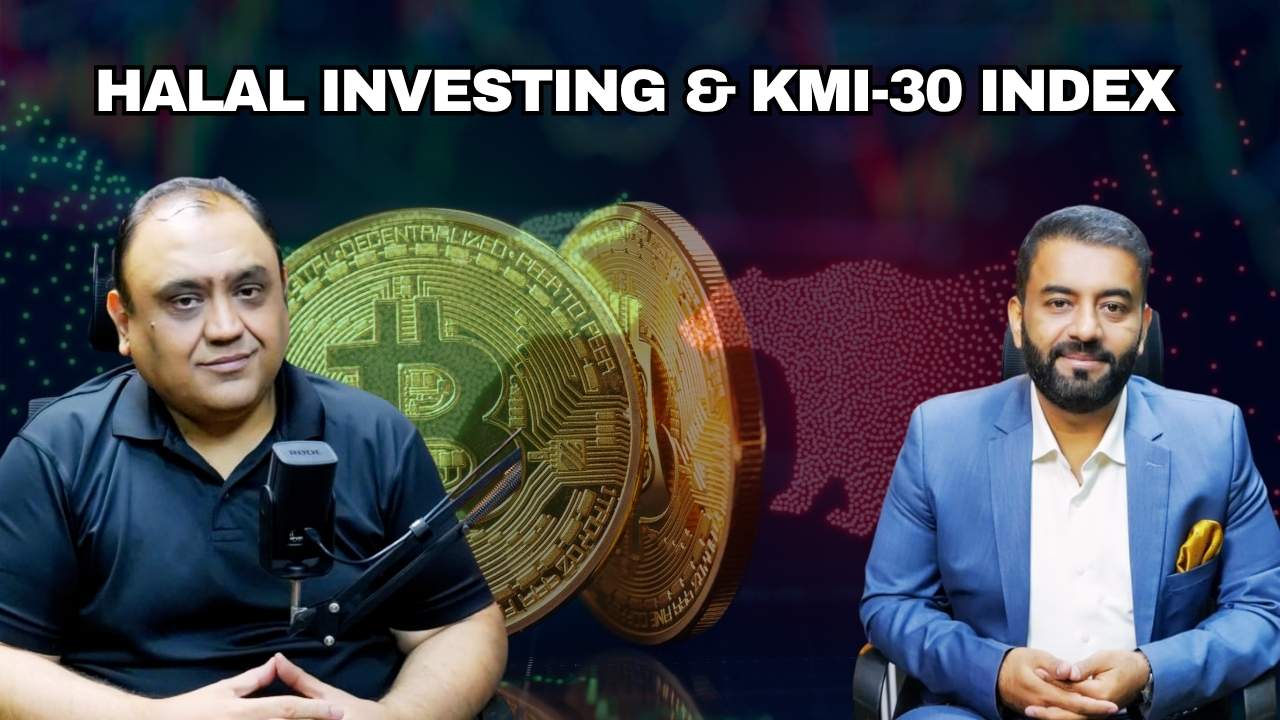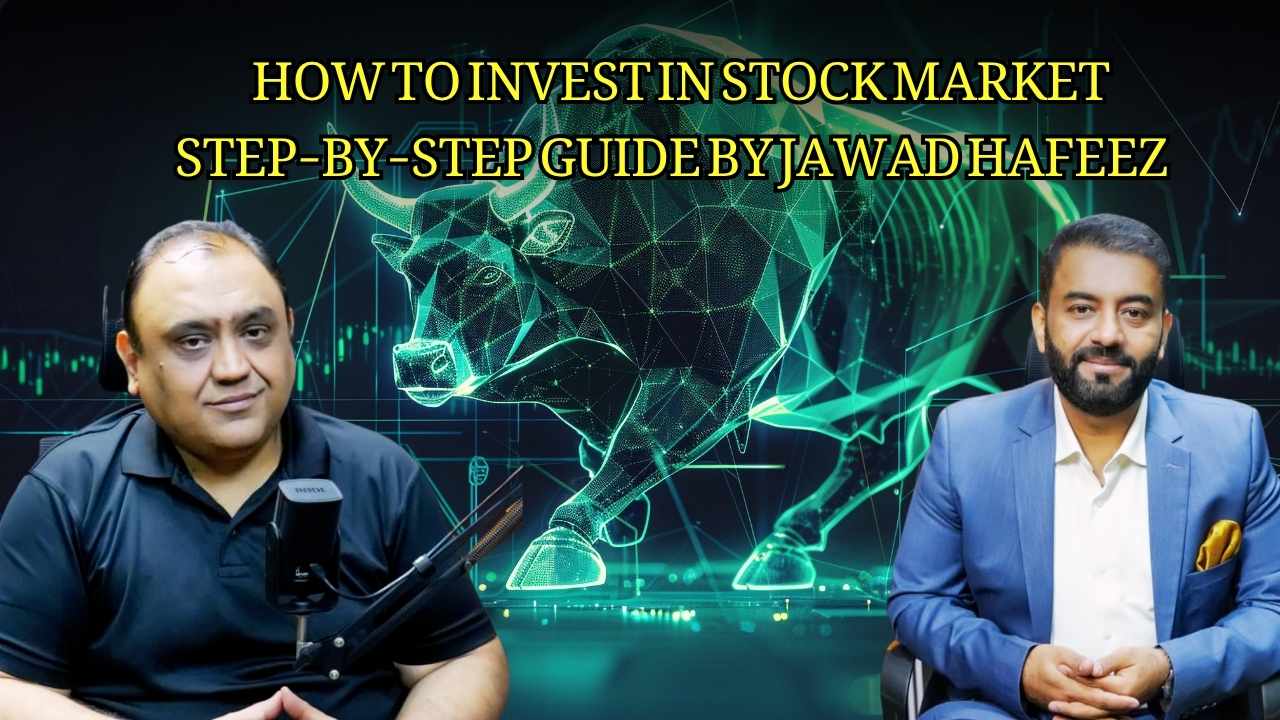In a country where most people dream of instant wealth. But fearing long-term investment, financial education becomes an act of empowerment.
In the episode of Think Digital Podcast, I discuss How to Invest in Stock Market, some surprising facts with Jawad Hafeez. One of Pakistan’s most respected investment educators. To simplify what many consider complicated — the art of investing in the stock market.
Jawad Hafeez spoke with conviction, challenging every illusion we carry about money, wealth and success.
His message was direct: “You’re not Dubai or Saudi Arabia; you don’t have oil under your feet — you have to build your own wealth, brick by brick.”
And that’s exactly what this conversation was about — turning small habits into lifelong financial freedom.
Harsh Truth: We Gamble More Than We Invest
Most Pakistanis mistake speculation for investing.
We buy “tips” from social media, chase crypto hype, or invest money we can’t afford to lose.
As Jawad Hafeez explained, true investing is not about luck — it’s about logic.
Every day, people sell jewelry or borrow cash to jump into “hot stocks,” hoping for overnight profit. But when prices fall, so does their confidence.
That cycle of desperation and regret keeps us poor — not the lack of opportunity.
Hafeez’s words cut deep:
“Knowledge is everywhere, but wisdom is in practice. Learn before you earn.”
Financial Education First
The conversation turned practical as Jawad broke down the step-by-step process of how to invest in stock market. Specifically guiding beginners on starting in the Pakistan Stock Exchange (PSX).
His roadmap was simple and achievable:
- Open a Sahulat Account – designed for beginners with minimal documentation.
- Choose a Registered Broker – verified by the Pakistan Stock Exchange.
- Create a CDC Investor Account – to safely hold and manage your shares.
- Understand the Basics – like PE ratio, book value, and ROI before buying any stock.
This, he emphasized, is the foundation of smart investing — learn the system before you enter the game.
🎧 Watch the full episode: How to Invest in Stock Market | Step-by-Step Guide by Jawad Hafeez
Start Small, Think Big
Many people believe you need lakhs of rupees to start investing.
Jawad Hafeez shattered that myth with one brilliant analogy:
“Save one pizza’s worth — just Rs. 5,000 — every month and invest it wisely.”
Even Rs. 300 to Rs. 5,000 per month can start your journey.
Magic lies in consistency and compounding — not in starting amount.
He explained the Systematic Investment Plan (SIP) model — a practical example of how to invest in stock market with consistency and patience. Invest monthly, review quarterly, and stay disciplined.
Even at a 20% annual return, that small contribution can grow to Rs. 11 crore in 30 years. It’s not just numbers — it’s the mathematics of discipline.
Avoid Traps That Destroy Wealth
During the podcast, Jawad Hafeez shared stories of people who lost fortunes because of emotion and ignorance.
He listed three dangerous habits:
- “Pump and dump” stocks promoted by unverified groups.
- Emotional investing, where decisions are driven by greed or fear.
- Copying random “analysts” without understanding company fundamentals.
Real investors don’t follow trends — they study performance, verify data, and make logical choices.
As he said, “If your business isn’t adding value, it’s not an investment — it’s a liability.”
Best Sectors to Watch in Pakistan
According to Hafeez, Pakistan’s market is full of undervalued opportunities.
He highlighted oil exploration, banking, insurance and fertilizers as long-term growth sectors. The backbone of our economy.
These are the companies that produce, employ, and export — Ones that actually build value instead of chasing hype.
In his words,
“Selling milk isn’t business — selling flavored milk at ten times the value is.”
That’s what innovation in investing looks like: adding value where others see ordinary.
Halal Investing & KMI-30 Index

For those seeking Shariah-compliant investments, Jawad recommended focusing on KMI-30 Index (Karachi Meezan Index) — a portfolio of verified, interest-free stocks that align with Islamic finance principles.
He reminded listeners that Islam doesn’t discourage profit — it discourages exploitation.
When investing is backed by research, ethics, and patience, it becomes both halal and profitable.
Discipline Over Desire
At the core of our discussion was one timeless principle:
Investing is not gambling — it’s delayed gratification.
Jawad and I both agreed that Pakistan’s biggest wealth gap is not money — it’s mindset.
If we could teach young people the power of saving, compounding, and reinvesting, we could shift the entire economic landscape of the country.
He ended with a line that still echoes:
“Every Pakistani — from a sweeper to a CEO — can invest Rs. 5,000 a month. The problem isn’t opportunity; it’s discipline.”
The Bigger Picture: Learning, Adapting, and Growing
Beyond stocks, the conversation was about mindset transformation.
In a world driven by technology and change, financial literacy is no longer optional — it’s survival.
Investing in knowledge today means securing your tomorrow.
Every small, informed step builds confidence, independence, and generational stability.
The future doesn’t belong to those who wait — it belongs to those who learn, adapt, and take action.
That’s the message of this episode.
It’s not just about charts, shares, and returns — it’s about a new culture of financial discipline in Pakistan.
Final Word — From Munir Ahmad
I’ve always believed that information becomes power only when shared with purpose.
This conversation of Munir Ahmad with Jawad Hafeez wasn’t just an interview — it was a masterclass for every Pakistani who wants to understand wealth the right way.
If we can move from emotional spending to mindful investing, we can change not only our personal lives but our national future.
So, the next time you’re about to buy that extra pizza — remember, that same Rs. 5,000 could be your first step toward financial freedom.


